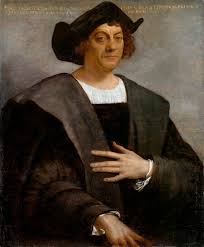
Introduction
The figure of Christopher Columbus has sparked debate and discussion for centuries. Known for his voyages that led to the European awareness of the Americas, Columbus’s legacy is a blend of exploration, cultural exchange, and significant ethical questions. In recent years, the impact of his actions on indigenous populations and the subsequent colonization of the Americas have led to a reevaluation of his role in history. Understanding Columbus is essential as it sheds light on issues of colonialism and cultural sensitivity still relevant today.
The Voyages
Christopher Columbus, an Italian explorer sailing under the Spanish flag, embarked on four transatlantic voyages between 1492 and 1504. His journey initially aimed to find a western sea route to Asia but resulted in the discovery of the New World. His first landing in the Bahamas marked the beginning of European exploration and eventual colonization of the Americas.
Impact on Indigenous Peoples
Columbus’s arrival in the Americas had severe consequences for the indigenous populations. Spanish colonization led to devastating effects due to violence, enslavement, and the spread of diseases. This resulted in the drastic decline of Native American populations, along with the erasure of their cultures and traditions. This aspect of Columbus’s legacy is increasingly recognized and critiqued in contemporary discussions.
Reevaluation of Legacy
In recent years, Columbus has become a polarizing figure. While some celebrate him for his navigational achievements and contributions to global awareness, many indigenous groups and activists highlight the atrocities committed under his command. Statues of Columbus have been removed in various cities, and many have called for a reassessment of national holidays dedicated to his memory, such as Columbus Day, which has been replaced by Indigenous Peoples’ Day in several jurisdictions.
Conclusion
The legacy of Christopher Columbus serves as a reminder of the complexities surrounding historical figures. His voyages opened new worlds for exploration but also initiated processes that led to suffering and cultural destruction. As society continues to grapple with the implications of colonial history, the discussion of Columbus’s impact is vital for understanding the past and shaping a future that acknowledges all narratives. Moving forward, it is crucial to promote education that embraces multiple perspectives, fostering a more inclusive view of history that respects the voices of those affected by colonialism.



